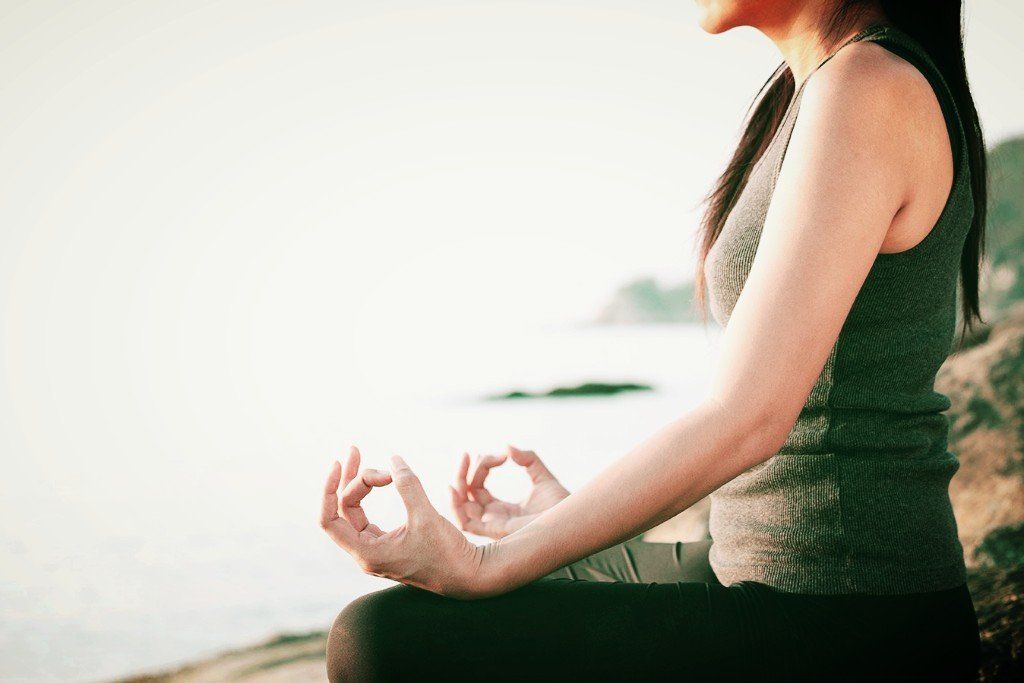Blog Post
Therapeutic Lifestyle Changes
- By Nicole Silverio
- •
- 09 Sep, 2017
Creating habits for a healthy life

In a previous post
about finding balance in our busy lives, I mention Dr. Walsh's insightful article on the concept of Therapeutic Lifestyle Changes (TLCs). This article contains sooo much useful information on how simple healthy habits can positively impact our mental health; It is a goldmine! For that reason, I wanted to make sure I take the time to further discuss and share it's content.
Dr. Walsh describes 8 TLC's: exercise, nutrition and diet, relationships, time in nature, recreation, relaxation and stress management, religious and spiritual involvement, and lastly contribution and service to others. Let's talk more about each of these!
Dr. Walsh describes 8 TLC's: exercise, nutrition and diet, relationships, time in nature, recreation, relaxation and stress management, religious and spiritual involvement, and lastly contribution and service to others. Let's talk more about each of these!
Exercise
Most of us know that exercise is good for our physical health, but I imagine not everyone is aware of the BIG effect that exercise can have on our mental health. Many of us have probably experienced improvements in mood when regularly exercising, so when I learned that there is a ton a of research to support exercise as an effective tool to prevent, fight, or cope with mental illness, it really made sense!
Dr. Walsh shares numerous studies which have suggested that engaging in regular exercise can help reduce risks of depression, anxiety, addiction, and even age-related cognitive decline disorders (e.g. Alzheimer's). He mentions that in regards to benefits, exercise even compares favorably with medication and therapy in treating depression. Pretty amazing (in my humble opinion).
The proposed reasons for why exercise can be so effective in improving our mental health are a combination of the psychological and physiological effects that exercise has on us. Things like improved self-esteem and self-efficacy, interruption of negative thoughts, release of endorphins, improved sleep, etc. No matter the reason, we know that exercise (both aerobic exercise and weight training) can help us feel better. This is great news because exercise can be easily available to most us, whether it's going for jog, riding bike, or looking up some free yoga videos online.
Dr. Walsh shares numerous studies which have suggested that engaging in regular exercise can help reduce risks of depression, anxiety, addiction, and even age-related cognitive decline disorders (e.g. Alzheimer's). He mentions that in regards to benefits, exercise even compares favorably with medication and therapy in treating depression. Pretty amazing (in my humble opinion).
The proposed reasons for why exercise can be so effective in improving our mental health are a combination of the psychological and physiological effects that exercise has on us. Things like improved self-esteem and self-efficacy, interruption of negative thoughts, release of endorphins, improved sleep, etc. No matter the reason, we know that exercise (both aerobic exercise and weight training) can help us feel better. This is great news because exercise can be easily available to most us, whether it's going for jog, riding bike, or looking up some free yoga videos online.
Nutrition & Diet
The amount of available information on nutrition and diet can be confusing and overwhelming! To simplify this topic, Dr. Walsh's article focuses on 2 areas of nutrition and diet: food selection and supplements.
Food Selection
When it comes to food selection, TLC's recommendations include 3 basic principles:
Supplements
In regards to supplements, TLC's recommendations focus on 2 supplements: Omega-3s and Vitamin D. Dr. Walsh explains that getting enough Omega-3's is essential for neural functioning and has been associated with improvements in cognitive functioning, as well as correlated with reduction in depression. Vitamin D is also highlighted as an important supplement to assist our bodies and mind in being healthy. In the article it is mentioned that there is a widespread vitamin D deficiency among the population, which is a shame, considering that Vitamin D has been associated depression, cognitive decline, and bipolar disorder. Vitamin D can be absorbed from exposing your bare skin to the sun (safely and moderately) and from vitamin D supplements.
*For a fun and yummy way to add color to your diet, check out the recipe video below on a "Rainbow Noodle Salad":
Food Selection
When it comes to food selection, TLC's recommendations include 3 basic principles:
- Eat a "rainbow diet", which is one that includes a wide variety of colors. We're not talking skittles here (just to clarify)! TLC's recommendations are for our eating habits to include a wide range for fruits and vegetables. The different colors ensure that we are ingesting a wide variety of nutrients needed for our bodies to function well.*
- Consume Omega-3s. Most people get their Omega-3s from fish sources; just be sure to pay attention to mercury levels when selecting which fish you consume. You can also do some research about plant sources for Omega-3s (e.g. flax seeds, chia seeds, hemp seeds, etc.)
- Reduce excessive calories. This one is pretty straight forward - don't eat more than your body needs for healthy sustainability.
Supplements
In regards to supplements, TLC's recommendations focus on 2 supplements: Omega-3s and Vitamin D. Dr. Walsh explains that getting enough Omega-3's is essential for neural functioning and has been associated with improvements in cognitive functioning, as well as correlated with reduction in depression. Vitamin D is also highlighted as an important supplement to assist our bodies and mind in being healthy. In the article it is mentioned that there is a widespread vitamin D deficiency among the population, which is a shame, considering that Vitamin D has been associated depression, cognitive decline, and bipolar disorder. Vitamin D can be absorbed from exposing your bare skin to the sun (safely and moderately) and from vitamin D supplements.
*For a fun and yummy way to add color to your diet, check out the recipe video below on a "Rainbow Noodle Salad":
Relationships
Healthy relationships with our loved ones (friends, family members, significant others, etc.) have many benefits. In regards to mental health, these positive relationships have been associated with higher levels of happiness, quality of life, and resilience. Some research also suggests connections between healthy relationships and our physical wellbeing, indicating reduced risks for illnesses ranging from the common cold to strokes. Really fascinating stuff, huh?
The reality is that we are wired to be social beings; do some more research on mirror neurons and you may be surprised at how much our biology encourages socialization and human connection through empathy. We really are more interconnected than we may realize! This may be why so many people can experience powerful changes and improvements while attending counseling; if you really think about it, counseling is all about establishing a healthy relationship where you can be heard, validated, and experience a genuine human connection. The relationship building skills you practice in counseling, can then be transferred to relationships with acquaintances, friends, and family members.
In such an individualistic culture, it may be easy to forget that for our wellbeing, the wellbeing of those we love, and the wellbeing of our communities, we really do need to take the time to connect, to hear and be heard, to understand and be understood. We will be all the happier because of it.
The reality is that we are wired to be social beings; do some more research on mirror neurons and you may be surprised at how much our biology encourages socialization and human connection through empathy. We really are more interconnected than we may realize! This may be why so many people can experience powerful changes and improvements while attending counseling; if you really think about it, counseling is all about establishing a healthy relationship where you can be heard, validated, and experience a genuine human connection. The relationship building skills you practice in counseling, can then be transferred to relationships with acquaintances, friends, and family members.
In such an individualistic culture, it may be easy to forget that for our wellbeing, the wellbeing of those we love, and the wellbeing of our communities, we really do need to take the time to connect, to hear and be heard, to understand and be understood. We will be all the happier because of it.
Nature

This may come as a surprise, but believe it or not, spending time in nature has been associated with improved mental health. The idea is that nature can provide us with respite from our hectic lives and allow us to reconnect with ourselves and with our values; it's a way of being reminded of what really matters. Not mention, that when we are in nature we are given the gift of silence and natural light (i.e sunlight).
In today's world, we can easily feel disconnected from the amazing beauty the natural world has to offer. We spend more and more time browsing on the web, looking through social media sites, watching TV, and living out our lives in a digital space. And although the verdict is still out on how these lifestyle choices impact psychological wellbeing, there are those who suggest that such extreme media immersion can be result in stress, information overload, and ineffective multi-tasking.
Lucky for us, we live in Central Florida! This means that we have access to beautiful sites in a wide variety of settings (e.g. hiking trails, beaches, wetlands, natural springs, nature preserves, etc.) to reconnect with nature. It's just matter of quick google search and setting aside some well-deserved time!
In today's world, we can easily feel disconnected from the amazing beauty the natural world has to offer. We spend more and more time browsing on the web, looking through social media sites, watching TV, and living out our lives in a digital space. And although the verdict is still out on how these lifestyle choices impact psychological wellbeing, there are those who suggest that such extreme media immersion can be result in stress, information overload, and ineffective multi-tasking.
Lucky for us, we live in Central Florida! This means that we have access to beautiful sites in a wide variety of settings (e.g. hiking trails, beaches, wetlands, natural springs, nature preserves, etc.) to reconnect with nature. It's just matter of quick google search and setting aside some well-deserved time!
Recreation and Enjoyable Activities
I have some GREAT news everyone: Having fun is good for us! Something as simple as laughing can be impactful in improving our moods, mitigate stress, and supporting immune function. So go ahead and drop the obligatory, self-inflicted guilt trip whenever you set aside time for recreation. Just remember, research suggests that having fun is helpful in better coping with distress; when having fun you are essentially creating a positive reinforcement system for yourself.
Not to mention, that recreation can often overlap with the other TLC's (e.g. exercising, hanging out with friends, time in nature, etc.), allowing us to address those areas of our life simultaneously. Recreation can also include meeting the needs of our creative selves. Activities like making art, music, writing poetry, etc. are all included under the umbrella of recreation.
Do you have a hobby or fun activity that brings you joy? What are some small ways you can include that activity in your life more often so as to experience the positive emotions associated with it?
Not to mention, that recreation can often overlap with the other TLC's (e.g. exercising, hanging out with friends, time in nature, etc.), allowing us to address those areas of our life simultaneously. Recreation can also include meeting the needs of our creative selves. Activities like making art, music, writing poetry, etc. are all included under the umbrella of recreation.
Do you have a hobby or fun activity that brings you joy? What are some small ways you can include that activity in your life more often so as to experience the positive emotions associated with it?
Relaxation and Stress Management

Managing chronic stress effectively and consistently is key for our emotional wellbeing. And unfortunately, although stress is universal, knowledge about healthy coping skills for managing said stress is not. We don't always learn the necessary skills to cope with stress, and sometimes even if we have the skills (e.g. practicing some of the other TLCs discussed in this article), we may have difficulties implementing them. Where it's time restrictions, not fully understanding the importance of managing stress, or fear, I would urge everyone to find the motivation and discipline to directly address your stress.
Self-Management Skills
Some of the self-management skills discussed in the article include:
There are many free available resources and tools online that can help you get started with a stress-management skill of your liking. The University of Michigan Medicine has a cool guided imagery audio library, which can be a great start:
https://www.mcancer.org/support/managing-emotions/complementary-therapies/guided-imagery/audio-library
Self-Management Skills
Some of the self-management skills discussed in the article include:
- Meditation
- Guided imagery
- Yoga
- Muscle relaxation exercises
- Mindfulness
There are many free available resources and tools online that can help you get started with a stress-management skill of your liking. The University of Michigan Medicine has a cool guided imagery audio library, which can be a great start:
https://www.mcancer.org/support/managing-emotions/complementary-therapies/guided-imagery/audio-library
Religious and Spiritual Involvement
Spirituality is very personally defined and it may or may not involve religion. For some, the simple act of going into nature, or being grateful, is enough to feel spiritual fulfillment. Others may prefer the structure and community that a religious organization can offer. Regardless of what spirituality means to you, research seems to suggest that spiritual practices serve as a major means of coping with stress. This may explain why over 90% of the world population engages in religious and spiritual activities and believes.
It is important to note that, unfortunately, sometimes religion is used as a tool for violence, discrimination, and exclusion. Dr. Walsh points out that benefits from practicing religion and spirituality seem to be most likely when the practices and believes center around the idea of love and forgiveness. Some of the mental health benefits that have been suggested by research include reduced rates of depression, anxiety, substance abuse, and suicide.
If you're still in the process of defining your spiritual identity, please know that this is also okay. There is a huge variety of ways to explore this topic and learn about what matches your values. So don't be afraid to read, learn, and tune in to your spiritual self, however you may define it.
It is important to note that, unfortunately, sometimes religion is used as a tool for violence, discrimination, and exclusion. Dr. Walsh points out that benefits from practicing religion and spirituality seem to be most likely when the practices and believes center around the idea of love and forgiveness. Some of the mental health benefits that have been suggested by research include reduced rates of depression, anxiety, substance abuse, and suicide.
If you're still in the process of defining your spiritual identity, please know that this is also okay. There is a huge variety of ways to explore this topic and learn about what matches your values. So don't be afraid to read, learn, and tune in to your spiritual self, however you may define it.
Contribution and Service

Although it may sound a bit paradoxical, giving can be more beneficial to the giver than the receiver. This is because through our contribution and service, the giver can foster a sense of joy, generosity, and love. Multiple studies suggests that those who are engage in altruistic behaviors are psychologically happier and healthier.
For these reasons, contribution and service can be easily reimagined to be, not a sacrifice, but rather a wellness opportunity that can deeply enrich the life of the giver. In most communities there are many opportunities to volunteer and many non-profit organizations are grateful and open to new volunteers. The first step would be to find a cause that is near and dear to your heart. Here are a few suggestions of where to look, if you need a little help getting started:
No matter where and how you choose to help, know that cultivating altruism ca do wonders for your mental health!
For these reasons, contribution and service can be easily reimagined to be, not a sacrifice, but rather a wellness opportunity that can deeply enrich the life of the giver. In most communities there are many opportunities to volunteer and many non-profit organizations are grateful and open to new volunteers. The first step would be to find a cause that is near and dear to your heart. Here are a few suggestions of where to look, if you need a little help getting started:
- Homeless shelters
- Animal shelters
- Domestic Violence shelters
- Soup kitchens and food pantries
- Ronald McDonald Houses
No matter where and how you choose to help, know that cultivating altruism ca do wonders for your mental health!
Long Story Short...
Even small changes in your everyday life can lead to a happier healthier you! These TLC's can be a powerful way to strengthening your mental health and living you life with more intention. You don't have to make all these changes at once, and you may even notice that you can choose activities that simultaneously address the TLC's (e.g. going for a hike with friends). So feel free to be creative and enjoy the process of cultivating these habits!
Reference:
Reference:
Walsh, R. (2011). Lifestyle and mental health. American Psychologist, 66(7), 579-592. doi:10.1037/a0021769
-1900x875-1920w.jpg)
